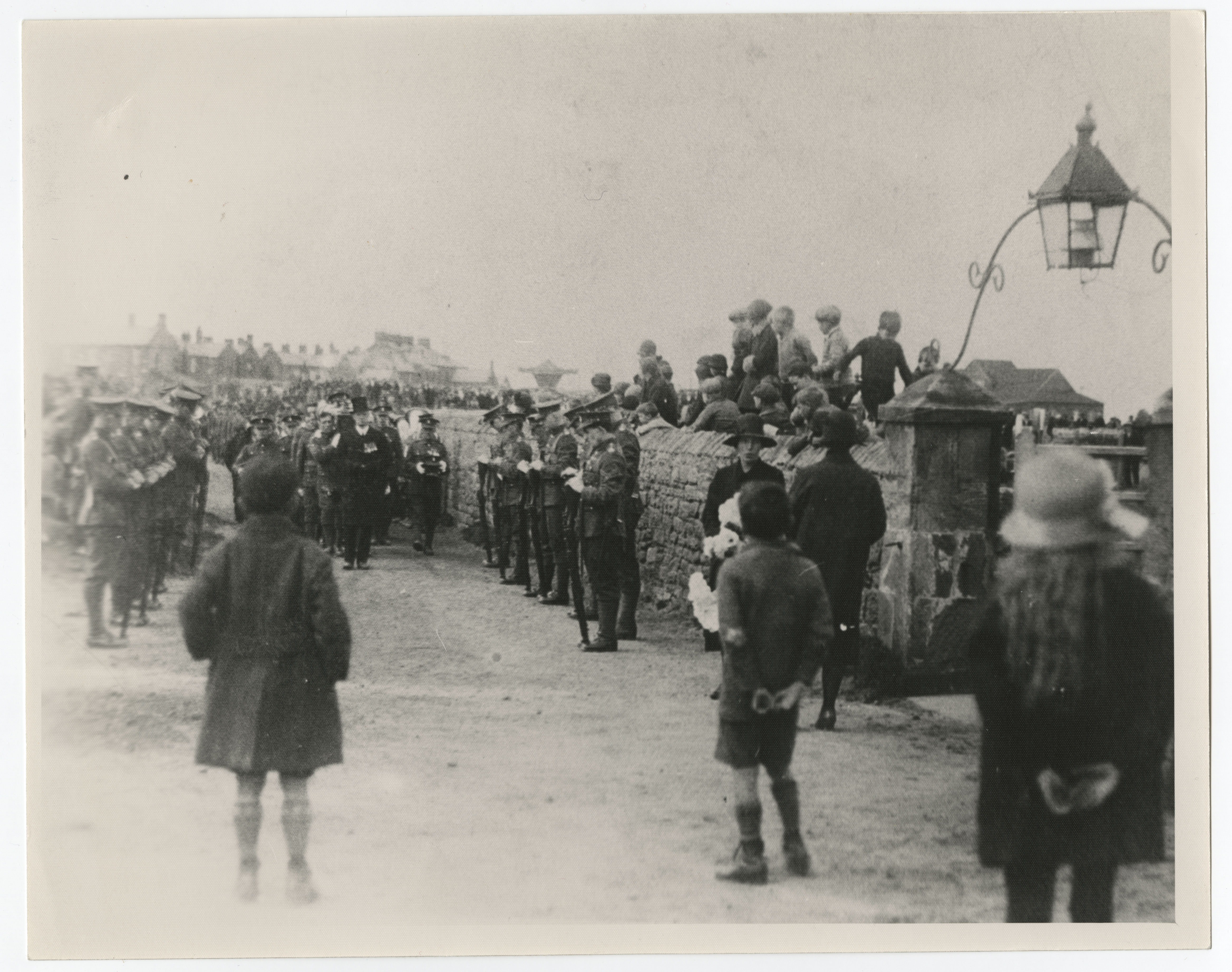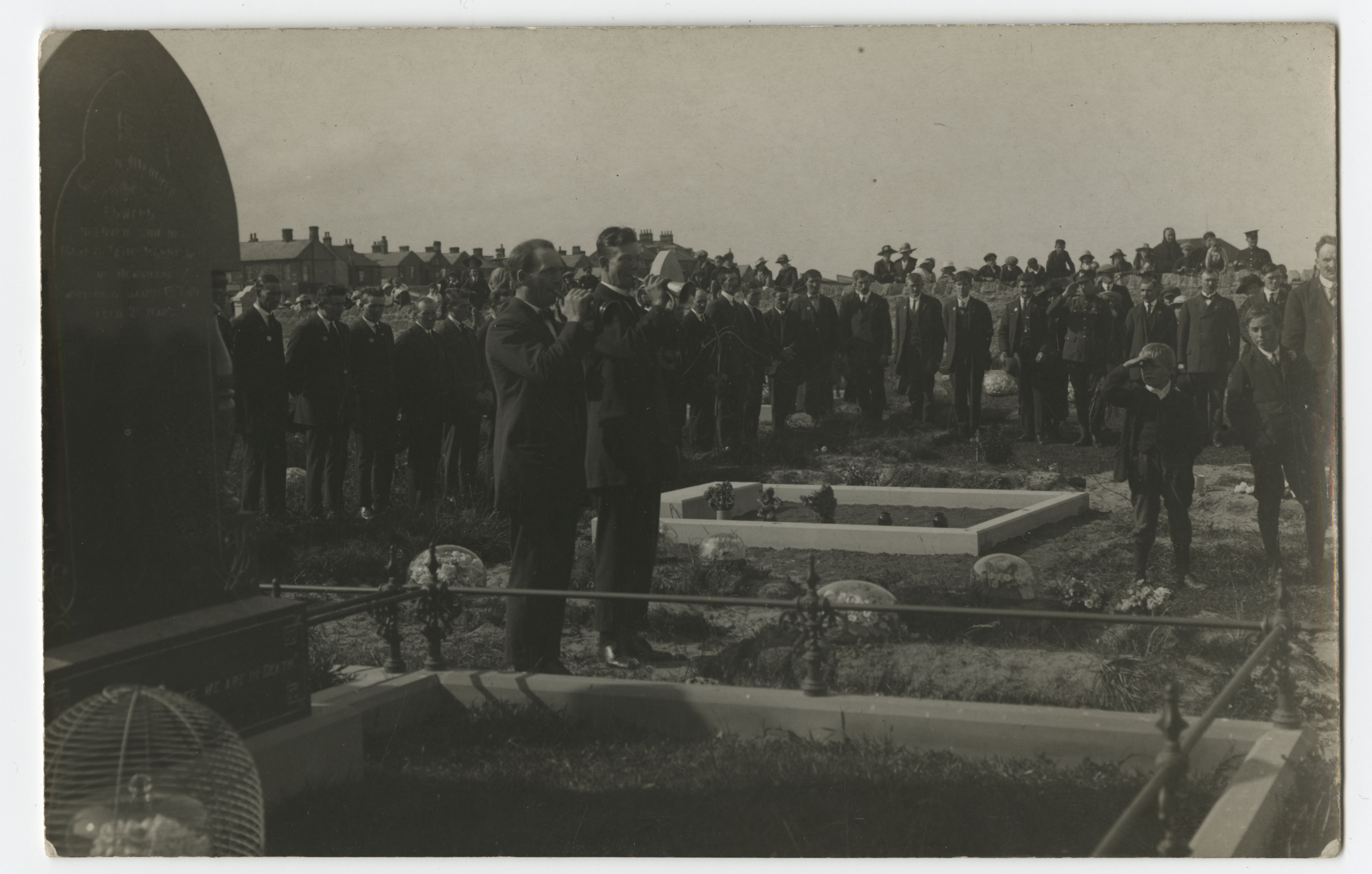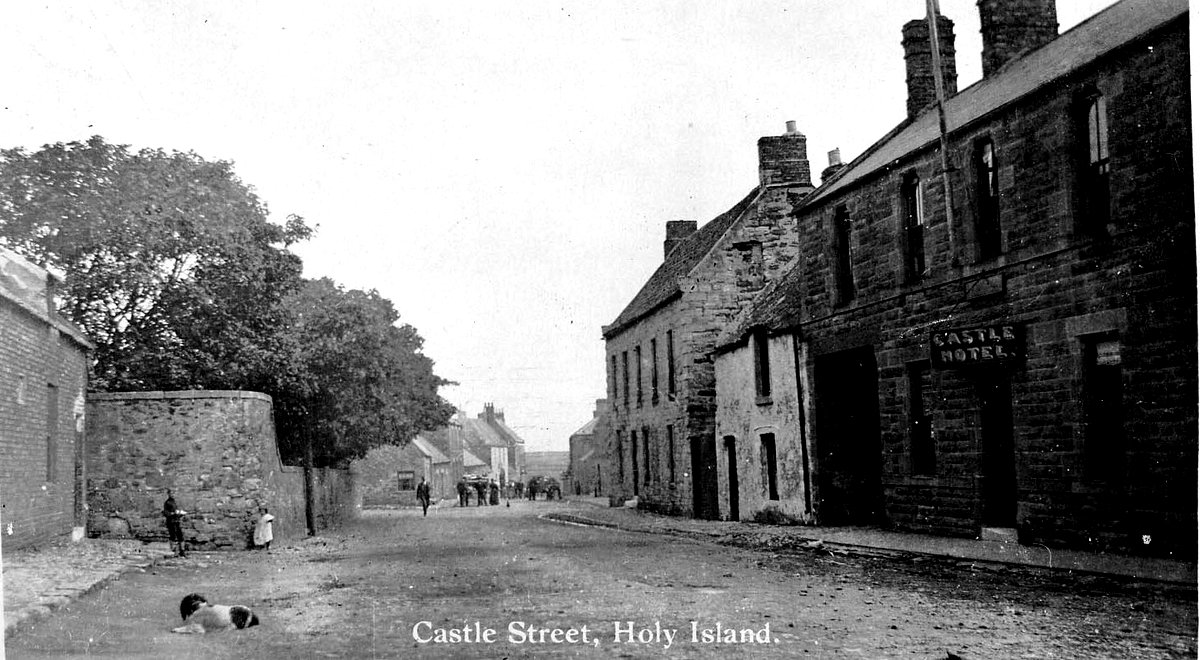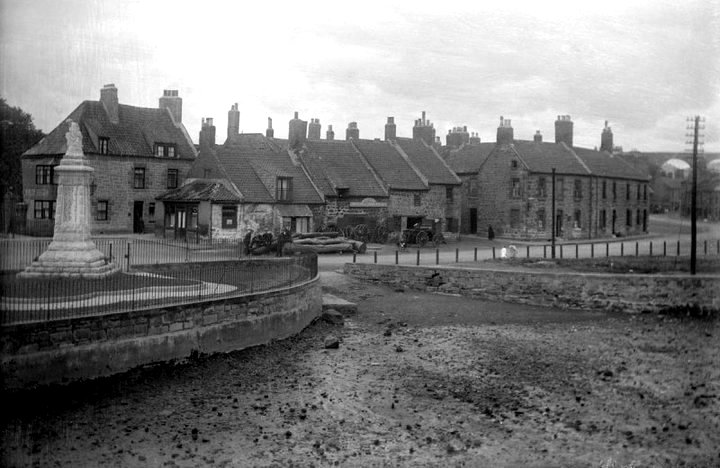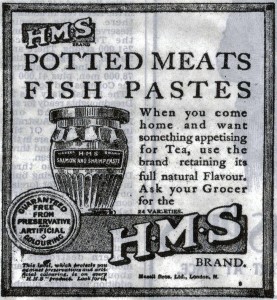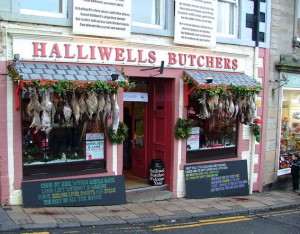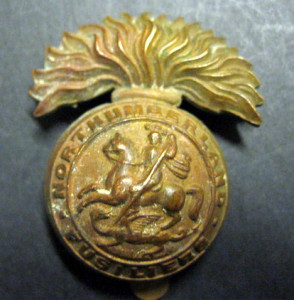Sgt. William Kay served throughout the First World War, only to be killed by a fall of stone at Woodhorn Colliery on 13th May 1929. William had been employed at Woodhorn Colliery as a Hewer – a miner who loosens rock and minerals in a mine – and died as a result of injuries sustained following a fall of stone. He has been working at the colliery for 18 weeks and left a widow aged 23, a daughter aged 2 and a son who was 1. His average weekly wage, including his allowances was £2. 4s & 11d.
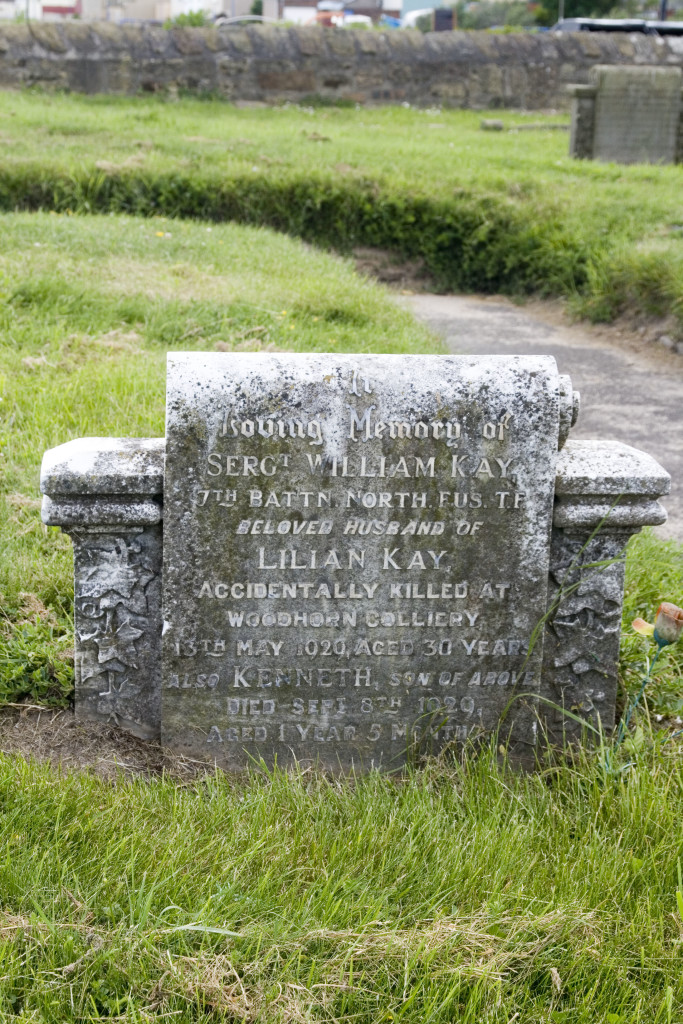 According to his gravestone he had served with the 7th Battalion of Northumberland Fusiliers T.F. [Territorial Force]. Interestingly his grave stone records his rank as Sgt. yet he worked in the collieries at the time of his death. This is very unusual – we have not seen this before. We have all seen programmes on TV where retired officers retain the title of their rank after leaving the Army. Examples of this include Captain Hastings in Poirot, Captain Peacock in Are you Being Served or the Major from Fawlty Towers! So why was he buried as Sergt? The entry in the burial register of St Bartholomew’s, Newbiggin by the Sea [ref – EP 21/17] just states William, there is no rank mentioned?
According to his gravestone he had served with the 7th Battalion of Northumberland Fusiliers T.F. [Territorial Force]. Interestingly his grave stone records his rank as Sgt. yet he worked in the collieries at the time of his death. This is very unusual – we have not seen this before. We have all seen programmes on TV where retired officers retain the title of their rank after leaving the Army. Examples of this include Captain Hastings in Poirot, Captain Peacock in Are you Being Served or the Major from Fawlty Towers! So why was he buried as Sergt? The entry in the burial register of St Bartholomew’s, Newbiggin by the Sea [ref – EP 21/17] just states William, there is no rank mentioned?
Could it be that being a ‘Sergeant’ meant a lot to William and this could be the reason the family decided to add his rank to the headstone, as a mark of respect. Certainly he must have been well respected by his unit and the people of Newbiggin by the Sea as his funeral was well attended. You can see a number of military personnel lining the route into the churchyard heads bowed as he passes as well as uniformed poll-bearers. [See images below.]
Was such a funeral common at this time? Has anyone come across any other local funerals like this one after the First World War?
We know he was born and schooled in County Durham from information on the 1911 census. His occupation on the marriage entry in the parish records states ‘Miner’ living in Newbiggin, when he married Lilian Price at Woodhorn church in 1925. The register records that William’s father and his wife’s father were also coalminers. The couple had three children, two whilst they probably shared a home with the Price family (in Sutherland Avenue, Newbiggin-By-The-Sea – the address where Lilian was living when she married).
William and Lilian appear to have moved out to Downie’s Buildings by the birth of their third child (a few doors from where Lilian and her family had lived in 1911), which would probably have been poor accommodation in comparison to Sutherland Avenue.
Their first son was only a few months old when he died and not long after William’s death his second son Kenneth died [8th September 1929]. Kenneth is mentioned on his father’s headstone. The burial register records Sgt. Kay living in the Bungalows (huts) at Newbiggin, but his wife and child’s records both before and after his death quote Downie’s Buildings as place of residence.
A small article relating to his inquest was located in the Blyth News & Ashington Post on 16th May 1929.
‘’The Inquest opened and adjourned on William Kay aged 30, of 7 Bungalow, Newbiggin who died on 13th following injuries in Woodhorn Pit. The man’s father Daniel Kay of 1 Northumberland Avenue, Newbiggin said his son had been employed in the mines for all, but 7 years of his life when he served in the Army.’’
These images were supplied by the Newbiggin by the Sea Genealogy Project and show the military funeral of William and buglers playing the last post by his graveside.
We would like to express our sincere appreciation to Newbiggin by the Sea Genealogy Project and Paul Ternent Volunteer Manager for Northumberland At War for writing this blog.

